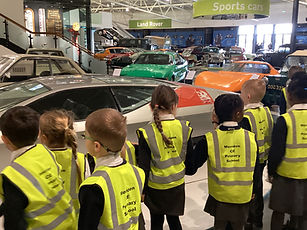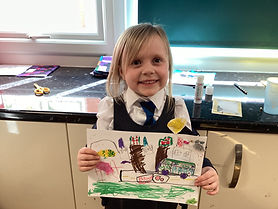Year 1
Welcome to the Year 1 Class Page!
Welcome to our class page! I am thrilled to be part of your child's learning journey this year and to explore the wonders of Year 1 together. Our classroom is a space where curiosity is encouraged, and every child's unique strengths are nurtured.
This year, we have some exciting topics to explore, including Toys from the Past, Transport, and The Seaside. These themes will bring history and the world around us to life, sparking curiosity and creativity in your children. We're also looking forward to an educational trip to the British Motor Museum, where the children will have the chance to connect what they learn in the classroom with real-world experiences.
I believe that a strong partnership between school and home is key to your child's success, so please check the class Sway regularly for updates and important information.
Thank you for your support. I look forward to a wonderful and enriching year together.
Warm regards,
Miss Kenny
Year 1 Class Teacher

Year 1 Team
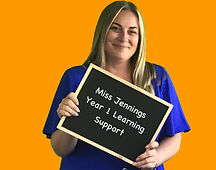
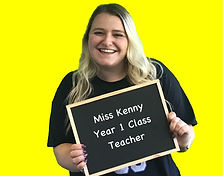

Curriculum Overview
English
Phonics is a key focus in Year 1, laying the foundation for strong reading skills. We'll concentrate on the priorities outlined in the National Curriculum, helping children develop their reading, writing, and comprehension abilities. We will focus on using the conjunction "and" to link ideas, introducing basic sentence structures, and understanding the difference between a question, statement, and exclamation. The children will also consolidate their understanding of the basics of capital letters and full stops. In our handwriting sessions, we'll begin by ensuring correct letter formation. As the year progresses, we'll work towards pre-cursive handwriting to prepare for more advanced writing skills.
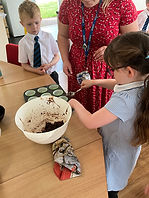
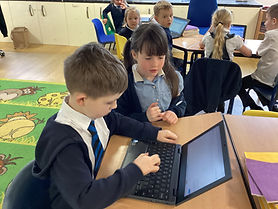

Maths
In Year 1, our maths curriculum will focus on building a strong understanding of numbers through the Mastering Number approach. This approach helps children explore how numbers relate to one another and introduces key concepts in a structured way.
Children will start by learning about the relationships between numbers and the concept of equivalence. They will practice using comparative language and mathematical symbols to understand these relationships. They will also learn about partitioning, which involves breaking numbers into parts, and will use the part-part-whole model to reinforce this concept.
New concepts such as subitising (recognising quantities without counting), ordinality (the order of numbers), and the bar model will be introduced. These tools help children visualise and solve number problems.
As they progress, children will explore numbers six to ten, understanding their five-and-a-bit structure and learning about odd and even numbers. They will use abstract symbols (+, -, =) to represent number relationships and will practice addition and subtraction strategies.
We will also explore multiples of ten, counting in tens up to 100, and applying number facts within ten to solve problems involving multiples of ten. Children will learn to decompose two-digit numbers into tens and ones and understand the numbers 11-19.
The Mastering Number approach is designed to help children develop a deep understanding of numbers, how they work, and how they can be used in various situations. This goes beyond just counting; it’s about understanding the ‘why’ behind numbers. Regular, structured activities will support children in becoming confident with number bonds, place value, and mental arithmetic, laying a strong foundation for future mathematical learning.
By using this approach, we aim to equip children with the skills they need to become confident, capable mathematicians who can apply their number understanding in everyday life.
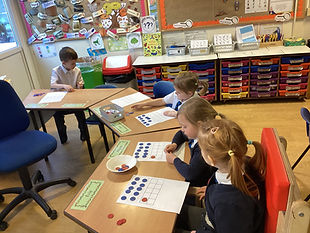
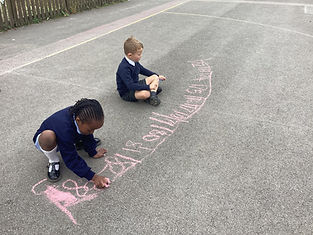
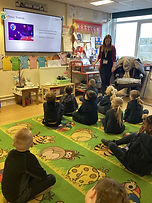
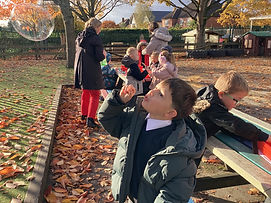

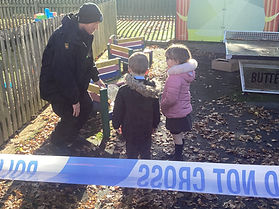
Science
In Year 1, our science curriculum is designed to spark curiosity and deepen understanding of the world around us. We follow a cyclical approach, revisiting key concepts throughout the year to reinforce learning and build upon previous knowledge.
This year in Science, our focus will be on "Animals Including Humans." Students will explore a variety of common animals, learning to identify them as carnivores, herbivores, or omnivores. They will also gain an understanding of the structure of different animals. Later in the year, we will revisit this topic to learn about the basic parts of the human body and how each part is linked to our senses.
Our study of Plants will start with identifying and naming common plants, trees, and flowers. As the year progresses, students will explore the basic structure of various common flowering plants, including trees. This will tie into our Seasonal Changes topic, where children will observe changes across the four seasons, including how the weather and day length change throughout the year.
In our Everyday Materials topic, children will explore and name various materials and their properties. They will also engage in simple scientific tests to investigate different questions, helping them to understand how materials behave in everyday situations.
Our cyclical approach ensures that children have multiple opportunities to engage with these concepts, deepening their understanding and building a strong foundation in science. Through practical investigations, observations, and discussions, we aim to develop your child's scientific thinking and curiosity about the world. Every year, the whole school takes part in STEM week, which is a chance to meet people who have STEM (Science, Technology, Engineering and Maths) based roles. This is an exciting week, full of practical activities and visitors to school.
RE
In Year 1, our Religious Education curriculum is designed to help children explore and understand different beliefs and practices, fostering respect and curiosity about the world’s diverse faiths. We will begin by learning about Judaism, where children will explore basic beliefs and traditions, including the importance of Mitzvot and the Torah. As we approach the festive season, our focus will move to Christmas. Children will learn about the Christian story of the birth of Jesus and the significance of Christmas to Christians around the world.

History and Geography
In Year 1, our History and Geography curriculum is designed to engage children with fascinating topics that develop their understanding of the world and the past. We place a strong emphasis on map skills, historical figures, and local history.
We begin with the topic "Toys from the Past," where children will explore how toys have changed over time, comparing similarities and differences. Next, we will journey to "Antarctica," introducing children to the world’s continents and the remarkable story of Sir Ernest Shackleton and his polar expedition.
Our study of "Transport" will focus on the evolution of different types of transport and how technology has driven these changes. As part of this topic, children will visit the British Motor Museum to see cars from various eras, including the very first car. Finally, we will conclude with "The Seaside," where children will compare life at the seaside in the past with the present day.

